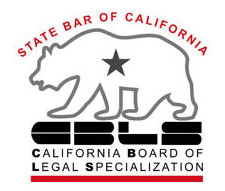What to Look for When Choosing a Bankruptcy Firm: Avoiding Bankruptcy Mills
 We recently met with a client who was finishing up a Chapter 7 bankruptcy she and her husband had started with another attorney. As the client was getting close to finishing this proceeding, her husband was sued, maliciously, by an ex-spouse who sought punitive damages against him in retaliation for him seeking to enforce a child-support order. Because punitive damages are often not dischargeable in a bankruptcy, this lawsuit threw a wrench into the works of the Chapter 7 they were almost ready to complete. Their bankruptcy attorney’s office did two things which were troubling:
We recently met with a client who was finishing up a Chapter 7 bankruptcy she and her husband had started with another attorney. As the client was getting close to finishing this proceeding, her husband was sued, maliciously, by an ex-spouse who sought punitive damages against him in retaliation for him seeking to enforce a child-support order. Because punitive damages are often not dischargeable in a bankruptcy, this lawsuit threw a wrench into the works of the Chapter 7 they were almost ready to complete. Their bankruptcy attorney’s office did two things which were troubling:
- First, it simply threw the summons and complaint from the lawsuit into the client’s lap (via mail) and told her she needed to get it taken care of.
- Second, the client discovered, after talking with me, that the attorney’s office had only sent the summons and complaint to the client after sitting on it for three weeks. The client had less than a week to file a response in the lawsuit or face a default judgment.
After talking to me, the client called the other attorney to ask why she hadn’t received it sooner. The only response from the attorney’s office was a shrug and a “you’d better get that resolved quickly.”
The most disturbing thing about this whole story came to light after she called the other attorney’s office. After that phone call, when she was relaying the story to me, it came out that the return call she received from the other attorney was the very first time she had actually talked to the attorney himself. All other interactions during her entire bankruptcy proceeding had been with staff members, not attorneys. The attorney had not met her for her initial meeting, for the intake/retainer process, for the collection of information critical to her case, or for the filing of the bankruptcy petition. He had not shown up for her required meeting with creditors before the bankruptcy trustee and the judge, a scary proceeding for many clients. And, as a problem arose that threatened to set her case back in a significant way, he essentially abandoned his client and told her that it was a problem she’d have to handle on her own.
As the nation struggles through the deepest and longest recession it has faced since the Great Depression, more and more people are turning to attorneys to seek to resolve some of the financial problems they face. This has led to a boom in the practice of bankruptcy law. Unfortunately for many clients, it has also led to a substantial change in the way bankruptcy services are provided by many attorneys. In place of the attorney-client relationship which is central to the practice of law, many clients find themselves meeting with paralegals, secretaries, and outright salespeople instead of a licensed attorney. Or the client might meet with the attorney for a quick initial consultation before being shuffled through a process handled entirely by non-attorney staffers.
Ask Dave About
"Ask Dave" is a growing collection of videos that explain estate & business planning terms and concepts in simple terms anyone can understand.Our goal is to empower you to make informed decisions when it comes to your future. Some popular topics are:
- About Probate
- Downside of Probate
- How A Trust Works
- Planning & Wills

Our Practice Areas
- Trusts (both simple and complex)
- Pour-Over Wills
- Powers of Attorney (health care & financial)
- Probate
- Asset Allocation & Trust Subdivision
- Estate Tax Planning & Strategy
- Capital-Gains Tax Planning
 Attorneys who do this primarily do it because it’s cheaper and easier than handling cases themselves. An attorney who only does ten percent of the work can take on ten times more cases than an attorney who is involved throughout the whole process. Clients who are facing financial ruin, by definition, don’t have the resources to switch attorneys halfway through the process when the services they receive are substandard. And, finally, there are so many people in financial distress that attorneys who run “bankruptcy mills” have a steady stream of clients even though few of their clients are satisfied with their services.
Attorneys who do this primarily do it because it’s cheaper and easier than handling cases themselves. An attorney who only does ten percent of the work can take on ten times more cases than an attorney who is involved throughout the whole process. Clients who are facing financial ruin, by definition, don’t have the resources to switch attorneys halfway through the process when the services they receive are substandard. And, finally, there are so many people in financial distress that attorneys who run “bankruptcy mills” have a steady stream of clients even though few of their clients are satisfied with their services.
A quote attributed to John Ruskin reads as follows:
“There is scarcely anything in the world that some man cannot make a little worse, and sell a little more cheaply. The person who buys on price alone is this man’s lawful prey.”
In the United States, apparently, bankruptcy mills have found plenty of lawful prey. In the age of $500 bankruptcies, is it any wonder that lowest-common-denominator service levels are becoming the norm? Bankruptcy mills would have clients believe that filing a bankruptcy is a routine and simple procedure. It is not.
So what are clients to do who are seeking competent bankruptcy advice and help? Here are a few suggestions:
- Be sure to meet with an actual, licensed attorney—not a paralegal, not a “document preparer,” and not a sales or marketing associate.
- Make sure the attorney spells out the benefits and pitfalls associated with your case. Contrary to what many ads and salespeople would have you believe, every bankruptcy case is different, and every one runs into snags of one kind or another.
- Ask the attorney what happens if a problem develops with your case. Is the attorney planning to handle a contested bankruptcy if it arises? Is the attorney even capable of handling a contested bankruptcy? Will there be an extra charge if there is litigation? Beware of an attorney who promises to do “everything” for a single flat fee.
- Make sure that the attorney is available to you to answer your questions. Non-attorney staffers are not allowed to answer legal questions. This is considered the unlawful practice of law and is illegal. More importantly, the lawyer needs to be available to you simply to make sure that the process is going as smoothly as possible.
- Confirm that the attorney is planning to attend your creditor meeting (also called a 341 meeting). Amazingly, the law does not require the attorney to be present for this hearing—the only person who is required to be there is you. Because of this, many bankruptcy mill practitioners routinely fail to appear at this critical step in the process. If a creditor’s attorney shows up and wants to grill you about your finances or other debts under oath, you don’t want to be sitting alone.
For many individuals, a bankruptcy can be a life-changing process—a fresh start that can help the client overcome otherwise impossible challenges. However, a client who believes that all bankruptcies, and all bankruptcy firms, are the same is setting himself up for an unpleasant surprise when he signs on with a bankruptcy mill and finds himself alone at the time when he needs the attorney the most. Careful interviewing and a realistic approach to the bankruptcy process will help protect clients from the pitfalls associated with bankruptcy mills and enable them to get the relief they need.
David R. Morris, Esq., is principal attorney at Morris Law Group, PLC, a firm that practices in the areas of bankruptcy, business transactions and structuring, estates and trusts, and asset protection law. The attorneys at Morris Law Group practice out of offices in El Dorado Hills and Sacramento, California. Mr. Morris can be reached at (916) 789-9810 or via e-mail at drmorris@morrislawgrp.com.

